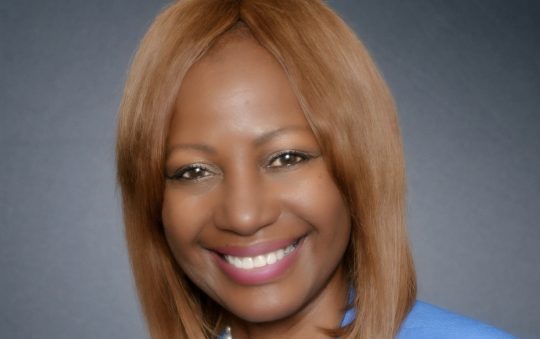
When you think of civil rights leaders, a number of names and faces pop up, among them—Dr. Martin Luther King, Jr., Medgar Evers and Malcolm X, to name a few. The Rev. Joseph E. Lowery is another name history will remember as the veteran civil rights leader died Friday, March 27, at the age of 98-years-old. During his lifetime, he helped Martin Luther King Jr. found the Southern Christian Leadership Conference (SCLC) and fought against racial discrimination.
Born in Huntsville, Alabama, in the 1920s, Lowery was born to Dora, a teacher and LeRoy Lowery, a small businessman. He grew up during a racially-charged era that included corrupt law enforcement, the Ku Klux Klan, and prejudiced neighborhoods. Lowery grew up in the Methodist church, where his great-grandfather was the first Black pastor.
Lowery graduated from high school in 1939 and was educated at several colleges, including Knoxville College in Tennessee; Wayne State University in Michigan; Payne College and Theological Seminary in Ohio; and the Chicago Ecumenical Institute. After college, Lowery edited a newspaper and taught school in Birmingham. He later married Evelyn Gibson, a Methodist preacher’s daughter, and began his first pastorate in Birmingham in 1948.
He graduated from seminary in 1950 and was ordained as a Methodist minister. From 1952 to 1961, Lowery was pastor of Warren Street United Methodist Church (UMC) in Mobile. It’s in the 1950s when Lowery met King in Montgomery, Alabama.

In 1955, in Montgomery, a Black woman named Rosa Parks sparked the Montgomery Bus Boycott when she refused to give up her bus seat to a White man. Lowery was instrumental in the bus boycott as he led a successful drive against the segregated bus system in Montgomery. He and other Black southern ministers met in Atlanta at the Ebenezer Baptist Church. They wanted to create an organization that would supply the Civil Rights Movement with leadership, which led to the formation of the Southern Christian Leadership Conference (SCLC) in 1957.
Under the leadership of King and Lowery, the SCLC’s goal was fighting for equality for Black Americans. Lowery faced a gamut of issues from being sued for libel by the state of Alabama, to violence from the police and militia during the 1965 march from Selma to Montgomery, having been imprisoned multiple times. Nevertheless, the SCLC became a leading force in the civil rights struggle of the 1960s.
In 1968, the year King was assassinated, Lowery was transferred from Birmingham to Atlanta to assume the pastorship of Central United Methodist Church. The year before, he was named chairman of the board of the SCLC, and in 1977, he succeeded as president of the organization. During this time, Lowery was successful in his ministry while gaining new members in the SCLC. The organization continued to address issues of police brutality, global human-rights struggles, voter registration, and the burning of Black churches.
From mid-1980s until his retirement in 1990s, Lowery was pastor of Cascade United Methodist Church in Atlanta. During his tenure, the church’s membership grew by 1,000, church funds increased to $1 million, and the church purchased land and began building a new facility. He also co-chaired the 1990 visit to Atlanta of Nelson Mandela, leader of the anti-apartheid movement in South Africa; spearheaded the construction of 240 low- and moderate-income housing units; and served as a board member of MARTA, Atlanta’s public transportation system for more than two decades. Lowery led the SCLC for two decades, restoring the organization’s financial stability and pressuring businesses not to trade with South Africa’s apartheid-era regime, before retiring in 1997.
Lowery’s many accomplishments and accolades include the Joseph and Evelyn Lowery Institute for Justice and Human Rights award at Clark Atlanta University in 2001. He has also received several honorary doctorates, a Lifetime Achievement Award from the National Association for the Advancement of Colored People, and dozens of other humanitarian awards.

In January 2009, Lowery delivered the benediction for the inaugural ceremony of U.S. President Barack Obama. Also, in 2009, Obama awarded Lowery the Presidential Medal of Freedom, the nation’s highest civilian honor. Lowery stayed involved in the battle for equality and civil rights movement.
His wife, Evelyn Gibson Lowery, worked alongside her husband of 70 years and served as head of SCLC/WOMEN, before passing away in 2013.
A member of Alpha Phi Alpha fraternity, Lowery is survived by his three daughters, Yvonne Kennedy, Karen Lowery and Cheryl Lowery-Osborne. He died at home in Atlanta from natural causes unrelated to the coronavirus outbreak, the family said in a statement.
Lowery made great strides for equality and civil rights, which was fortified by his Christian beliefs. He said it best with a statement that many may know and many holds to be true.
“I believe in the final triumph of righteousness,” Lowery stated. “The Bible says weeping may endure for a night, but joy cometh in the morning.”







